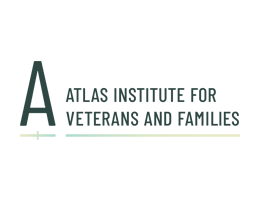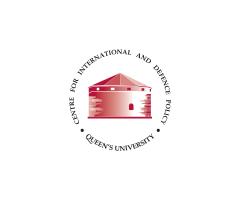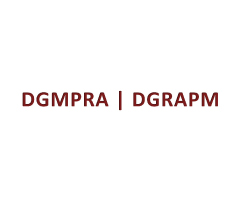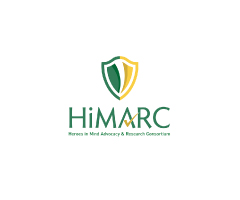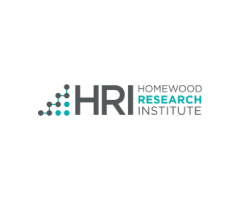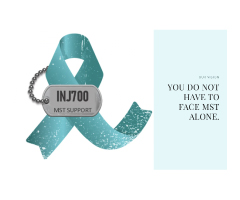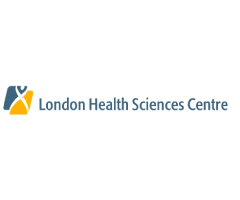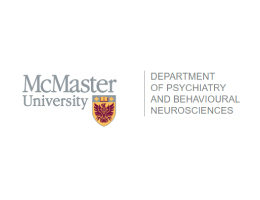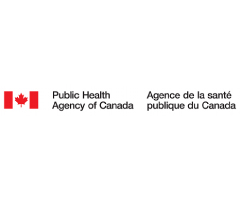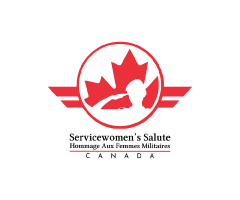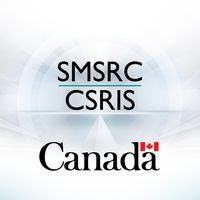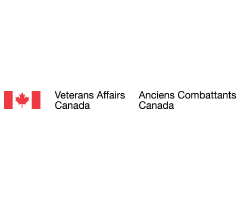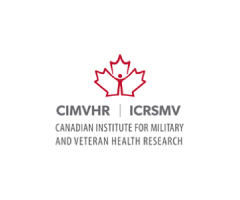The Canadian Military Sexual Trauma Community of Practice, McMaster University’s Department of Psychiatry and Behavioural Neurosciences, and the Centre of Excellence on PTSD are hosting a three-part virtual symposium on Military Sexual Trauma.
This three part symposium, which began on June 3, 2021 and continues with live sessions on September 16 and 23, brings together researchers and policy leads from across universities, government departments and intermediary organizations, as well as individuals representing those with lived personal experience of MST.
Whether you are a researcher, clinician, policy-maker, frontline worker or someone who has experienced sexual harassment or sexual misconduct in the military, Military Sexual Trauma (MST) and its aftermath affects thousands of Canadians.
This event has ended. More information and resources are available below.
Content warning
This webinar may include content on difficult topics including suicide. The content may be hard to listen to and may bring up a range of emotions. We encourage you to care for your safety and well-being.
A Path Forward Part three of the three-part virtual symposium series ‘Military Sexual Misconduct and Military Sexual Trauma in Canada: A Pathway to Understanding and Action’
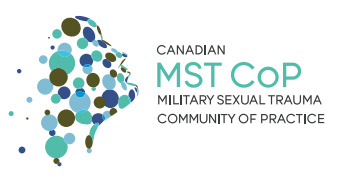
Speakers & Presentations
Read more about the speakers and view or download their presentations from this webinar. Note: Not all speakers have downloadable presentations available.
Dr. McKinnon serves as the Homewood Chair in Mental Health and Trauma and as Associate Professor and Associate Chair, Research, in the Department of Psychiatry and Behavioural Neurosciences at McMaster University. She is also the Research Lead in Mental Health and Addictions at St. Joseph’s Healthcare Hamilton and a Senior Scientist at Homewood Research Institute.
Dr. McKinnon completed her PhD in Psychology at the University of Toronto followed by a post-doctoral fellowship at the internationally-renowned Rotman Research Institute at Baycrest Centre. She is an elected Fellow of the Canadian Psychological Association and is dually licensed as a clinical psychologist and neuropsychologist.
Dr. McKinnon is well known for her work characterizing trauma-related illness and PTSD among military members, Veterans, first responders, and survivors of childhood abuse and trauma. She has also been involved in the development and testing of novel treatment interventions aimed at often unexplored aspects of PTSD and trauma, including guilt and shame, moral injury, dissociation, and cognitive dysfunction. Dr. McKinnon serves as the Chair of the federally-funded Centre of Excellence on PTSD’s Research Reference group and works closely with government sectors including Veterans Affairs Canada and the Canadian Armed Forces.
She has published over 100 peer-reviewed papers and chapters, and currently holds funding from the Canadian Institutes of Health Research, the Canadian Institute for Military and Veteran Health Research, Defence Canada, the Centre of Excellence on PTSD, and the Workers Safety Insurance Board of Ontario, along with numerous private foundations, including True Patriot Love, the Cowan Foundation, the Military Casualty Support Foundation, and the FDC Foundation.
Dr Alan Okros is a Full Professor in the Royal Military College, Department of Defence Studies, and is currently employed as Deputy Director Research in the Dallaire Centre of Excellence for Peace and Security, and as Special Advisor to the Chief, Professional Conduct and Culture.
As a researcher on leadership, gender equality, and diversity, Dr Okros has contributed to a range of Canadian and international projects to achieve equality objectives and enhance military operational effectiveness. As a policy entrepreneur, Dr Okros advocates for evolutions in military understandings and approaches to diversity and inclusion within the CAF and internationally including involving the military in the United States, Australia, New Zealand, Bolivia, Singapore and South Africa.
He has provided policy options for more inclusive approaches for those who are marginalized based on gendered identity or sexual orientation, including the requirements to address adverse aspects of military social construction and harmful use of social power. He serves as the Chair of IUS Canada, the Inter-University Seminar on the Armed Forces and Society – Canada.
Shoba Ranganathan is currently the Director of Operations at the Sexual Misconduct Response Centre and has been in this position since March 2021. Prior to this, she was the Chief Quality and Patient Safety Officer for the Canadian Forces Health Services (CFHS) within the Department of National Defence for ten years, focusing on quality improvement processes and evaluation of systemic risk. Shoba’s career highlights include leadership roles in quality improvement, patient safety, and external accreditation processes.
Colten joined the Canadian Armed Forces in September of 2009 from his hometown of Calgary. Like many others, Colten wanted to serve his country in the war effort against the Taliban in Afghanistan, only to find he would never be sent. Training as a Vehicle Technician on CFB Borden in 2013, Colten was instead raped by his colleagues over a disagreement involving his coworkers illicit drug use and sales out of their shared room in the Barracks. Colten now uses this experience to help influence change in the Canadian Armed Forces after releasing medically in 2020 after 10 years of service to Canada. Colten now serves as a member of the Sexual Misconduct Response Center’s (SMRC) External Advisory Council (EAC), and as the Vice-Chair of the advocacy and peer-support group, It’s Not Just 700.
Maggie joined the Canadian Armed Forces in 1980. During her 17 and half years of service she was posted to CFB Borden, CFS Beausejour, CFB Downsview where she was the subject of investigations by the Special Investigations Unit which included being questioned, surveillance, the questioning of third parties, and the search of her apartment; she was sexually harassed and harassed by your peers; she was threatened by her superior; she was harassed by Military Police who searched your room and repeatedly accused or laid unfounded charges against her; her postings were cancelled or denied; her promotion to the rank of Master Corporal was delayed. While posted to CFSAL Borden as an instructor she was sexually assaulted, got pregnant and had an abortion. After being posted to 1 ASG Edmonton with Transport Heavy Lift Unit, she took her volunteer release from service in 1997.
After leaving the CAF Maggie was employed with Honda of Canada Mtg. in Alliston On. She was a certified Achieve Global Trainer specialized in: Leadership and Teamwork for 11 years.
Maggie left Honda due to her mental health and self medicating. She struggled with her Complex PTSD and Major Depression which was untreated at the time due to the LGBTQ Purge and Military Sexual Trauma. It wasn’t until the LGBTQ Purge Class Action in 2019 was she able to reach out for help.
Since seeking help Maggie has taken her pain and put it to purpose helping others. The last two years she has worked endlessly helping others get help with psychological assessments and VAC claims. Many hours have been spent on a peer support document for MST.
To help herself with her recovery she has received certifications in Mental Health Awareness, CBT, Advanced CBT, and Anxiety Awareness. Workshops on Critical Incident Group Debriefing and Trauma Informed Care Building a Culture of Strength completed. As Maggie says, “It’s ok not to know what you don’t know, but once you do know, You Must Do Better!”.
Putting Pain to Purpose, Helping Others has been gratifying and very helpful in her own journey to recovery.
Life now for her living in the country with her service dog is meaningful and peaceful.
Sam has over 40 years of Reserve Force service and is a MST survivor. Like many others, her first assault happened during her basic recruit training when she was 17 years old.
Sam has been an active member of IJ700, now INJ700, since 2015 when she became involved in the Hands Project and created the IJ700 Instagram account for inspirational messages.
At that time she felt she had dealt with her multiple sexual assaults and constant sexual harassment well, and was enjoying a successful Canadian Armed Forces (CAF) career happily married to a Regular Force CAF spouse. However in 2016 she was again a victim of MST that was so traumatizing that it caused the loss of her full-time military position. The mental and physical trauma of this incident also led to the breakdown of her marriage as she tried to cope with the added release of unresolved previous MST, depression and hypervigilance.
With the recent assurances of the CAF to address harmful behaviours within the military and provide support for victims, Sam would like to use her extensive volunteer facilitator experience in Occupational Health & Safety, JLP Anti-Harassment, Union Conflict Resolution, federal Employee Assistance, and Ethic programs to help other MST survivors come forward and access the resources they need to enrich their healing journey. She also hopes her previous policy advisor experience at National Defence Headquarters will help to provide insights for the INJ700 group to go forward with viable options on recommendations for revised policies that truly combat harmful behaviours; because whether it happened 30 years ago or 30 days ago, the trauma feels the same.
Sam believes real changes can happen, but everyone needs to collaborate and become part of the healing process that too many men and women have put off through fear of reprisal.
Lori joined the Canadian Forces Reserve in 1982. Her Reserve Force Service entailed both part- and full-time engagements in Lethbridge, Calgary, Penhold, Esquimalt, and Comox. Lori released from the CF Reserve in March 1996.
Lori earned both a Master of Arts in Leadership and a Doctorate in Business. Her dissertation and thesis work focused on interpersonal relationships and organizational culture and change.
Using her military background to ground her while establishing her civilian career as a professor of business at Mount Royal University, she found much success in the classroom, until she was placed on permanent long-term disability in 2015 for recurrent, Complex PTSD.
Lori’s long journey of finding a way to a more peaceful life after MST has been largely effective because of formal therapies and good case management. These interventions as well as finding focus outside of the grief and pain of MST, namely through volunteering and purchasing and refurbishing a sailboat with her husband, Lawrence, have been instrumental in living a more peaceful life.
She splits her time between Calgary and Victoria as well as travels when able – looking for the next winery, great recipe to try at home, or new routes for her sailing adventures!
Her two adult children are in Vancouver and Calgary, where they are both pursuing post-secondary studies.
Vice-Admiral Baines’ career in the Royal Canadian Navy (RCN) has been a combination of sea-going appointments and staff officer positions throughout his 33 years of service. He started his career as bridge watch-keeping officer in Her Majesty’s Canadian Ship (HMCS) Saguenay, specializing in navigation and naval warfare en route to an appointment as Commanding Officer of HMCS Winnipeg in 2007. He held the appointment of Base Commander of Canadian Forces Base Esquimalt between July 2010 and July 2012. After serving as the Commander of Canadian Fleet Atlantic between 2014 and 2017, he was promoted Rear-Admiral and appointed Commander Maritime Forces Atlantic and Joint Task Force Atlantic. In July 2020, he became the Deputy Vice-Chief of the Defence Staff, and in January 2021 he was promoted to his current rank and appointed Commander Royal Canadian Navy.
Vice-Admiral Baines graduated from the University of Manitoba in 1988 with a Bachelor of Arts degree. While on exchange in Norfolk shortly following his warfare tours, he completed the US Naval War College program and a graduate certificate program in the history of strategy and policy at Old Dominion University. Upon returning to Canada in 2003, he attended the Canadian Forces Staff College in Toronto where he completed his Master of Defence Studies. In 2013, he completed the National Security Program in Toronto and a Master of Public Administration. In 2018, he completed the Senior Executives in National and International Security program with the Harvard Kennedy School.
Vice-Admiral Baines received the Meritorious Service Cross for his leadership as Commanding Officer of HMCS Winnipeg during Winnipeg’s counter-piracy mission off the Horn of Africa in 2009. In 2019 he was presented with the Degree of Doctor of Laws (honoris causa) from the University of Manitoba.
The PowerPoint package with all the presentations from this event is available for download.
Canadian Military Sexual Trauma Community of Practice – member organizations
The Canadian Military Sexual Trauma Community of Practice, McMaster University’s Department of Psychiatry and Behavioural Neurosciences, and the Centre of Excellence on PTSD are hosting a three-part virtual symposium on Military Sexual Trauma.
This three part symposium, which began on June 3, 2021 and continues with live sessions on September 16 and 23, brings together researchers and policy leads from across universities, government departments and intermediary organizations, as well as individuals representing those with lived personal experience of MST.
Whether you are a researcher, clinician, policy-maker, frontline worker or someone who has experienced sexual harassment or sexual misconduct in the military, Military Sexual Trauma (MST) and its aftermath affects thousands of Canadians.
This event has ended. More information and resources are available below.
Content warning
This webinar may include content on difficult topics including suicide. The content may be hard to listen to and may bring up a range of emotions. We encourage you to care for your safety and well-being.
Services and Supports for People Affected by MST

Related Resources
Speakers & Presentations
Read more about the speakers and view or download their presentations from this webinar. Note: Not all speakers have downloadable presentations available.
Dr. Alexandra Heber has over 35 years’ experience as a nurse, and as a psychiatrist. After a decade working with HIV+ clients and leading an ACT Team in Toronto, she enrolled in the Canadian Forces in 2006, and deployed to Afghanistan in 2009-10.
In 2016, she became inaugural Chief of Psychiatry for Veterans Affairs Canada. She also worked with the Public Health Agency of Canada to help develop the Federal Framework on PTSD. Currently, she co-chairs the Canadian Military Sexual Trauma Community of Practice.
Dr. Heber has written two online courses on PTSD treatment, using a Trauma-Informed Care approach. She has presented and published nationally and internationally on mental health in military, Veteran, and first-responder populations. Her current research interests include: mental health impacts of COVID-19, military sexual misconduct and trauma, and the effects of minority stress on women, LGBTQ2 Veterans, and other marginalized groups.
Dr. Heber is an Assistant Professor of Psychiatry at the University of Ottawa.
LCdr (Ret’d) Rosemary Park MSc CD is lead organizer of Servicewomen’s Salute – Hommage aux Femmes Militaires Canada, and Project Manager of the 2019-2023 Queen’s University Servicewomen’s Salute Portal Project.
Rosemary served in the Canadian Armed Forces as a Personnel Selection Officer from 1972-1993. Her service included principal researcher of the Canadian Forces’ 1979-1985 Servicewomen in Non-Traditional Environments and Roles (SWINTER) Trials, and NDHQ senior policy analyst of the Canadian Forces’ compliance with Canadian Charter of Rights and Freedoms Section 15, Canadian Human Rights Act facing legal challenge by military members and veterans.
As a military researcher, DND consultant and Veteran, she is the author of 45 military research reports, conference presentations and publications on servicewomen, women Veterans’ military service, inclusion, and story. As a community member living in York Region, Rosemary has been founder of three non-profit civic organizations, philanthropy donor funds, and the York Region Community Foundation. She was elected Board Executive of nine non-profits or charities, and appointed member of eight government, media, and academic-community committees.
Michelle Douglas (Lieutenant ret.) is a Veteran, a survivor of Canada’s “LGBT Purge” and an activist in the movement to seek legal equality for the LGBT2Q+ community over the past 30 years.
Michelle served as an officer in the Canadian Armed Forces from 1986 to 1989. Despite a distinguished service record, she was honorably discharged after being deemed “Not Advantageously Employable Due to Homosexuality.” After being fired by the military, Michelle’s landmark legal challenge in 1992 ended Canada’s formalized discriminatory policy against LGBT members of the military.
This experience launched a decades-long commitment to volunteerism and activism for Michelle. Professionally, Michelle had a 30-year career in public service. She retired from the Canadian Department of Justice in 2019 where she held the position of Director of International Relations.
Michelle currently serves as the Executive Director of the LGBT Purge Fund. Michelle is a member of the board of directors of the Michaëlle Jean Foundation. She was awarded the Queen Elizabeth II Diamond Jubilee Medal in 2012. In 2021, Maclean’s Magazine named Michelle one of their “Power List 50.” She is a graduate of Carleton University and resides in Ottawa.
Dr. Linna Tam-Seto is a Research Associate with the Trauma and Recovery Lab at McMaster University.
Dr. Tam-Seto holds a PhD in Rehabilitation Science and is a registered occupational therapist. Her research interests include understanding the health and well-being of Canada’s military members, Veterans, public safety personnel and their families during life transitions and changes.
Heidi Cramm, PhD, OT Reg. (Ont.) is an Associate Professor in the School of Rehabilitation Therapy at Queen’s University. Her program of research focuses on mental health and trauma among families of military, Veterans, and public safety personnel. She serves as Research Advisor, Canadian Institute for Military and Veteran Health Research (CIMVHR).
After retiring, with the rank of Captain in the Canadian Army, Annalise worked with a humanitarian organization, managing overseas projects on the ground in India, East Africa, and Southeast Asia.
In 2017, she went back to school to complete an additional degree, in Psychology, and then a graduate program in Executive Coaching. She works with organizations to create healthy (safe and inclusive) workplace cultures that lead to effective team performance. In terms of humanitarian work, Annalise still travels abroad to assist with projects and works as a leadership coach and consultant to help other charities expand their impact.
Laryssa Lamrock is the Strategic Advisor for Families at the Centre of Excellence on PTSD. She has a unique blend of experiences in nursing and military family deployment support. In addition, she has extensive knowledge and expertise in the field of peer support as well as lived experience as the spouse of a Veteran living with PTSD. She is also the daughter and mother of military members. Laryssa draws from these experiences as she advocates passionately for and represents the voices of military and Veteran family members.
After 12 rewarding years with the Operational Stress Injury Social Support (OSISS) program, Laryssa believes strongly in the importance of family involvement in the recovery process. It can improve the prognosis of mental health issues and have positive impacts on family functioning and wellness. Laryssa feels that there are many more services and programs that can be developed and made accessible to those supporting those who serve and have served in the Canadian military.
Dr. Denise Preston joined the Department of National Defence as Executive Director of the Sexual Misconduct Response Centre in May 2017. In that capacity, she is responsible for the delivery of a range of support services to Canadian Armed Forces (CAF) members who are affected by sexual misconduct, and for the provision of expertise and recommendations to the CAF to shape and monitor the development and implementation of training, policies, and programs to eliminate sexual misconduct in the CAF.
Prior to joining National Defence, she worked for the Parole Board of Canada for eight years as the Regional Director General for the Ontario/Nunavut region. As such, she was responsible for the delivery of the Board’s mandates in the region, which included information and support services to victims of federal offenders and establishment of a Victim Advisory Committee in partnership with the Correctional Service of Canada.
Prior to joining the Board, she worked as a psychologist for the Correctional Service of Canada for 19 years. She held a range of clinical, research, and managerial positions and worked in low, medium, and maximum-security institutions, as well as a psychiatric centre.
She has extensive experience working with sexual, violent, and mentally disordered offenders, and with victims of sexual abuse and assault.
She is a graduate of Queen’s University, with a PhD in Psychology, is registered with the College of Psychologists of Ontario, and is a member of the Canadian Psychological Association.
Dr. McKinnon serves as the Homewood Chair in Mental Health and Trauma and as Associate Professor and Associate Chair, Research, in the Department of Psychiatry and Behavioural Neurosciences at McMaster University. She is also the Research Lead in Mental Health and Addictions at St. Joseph’s Healthcare Hamilton and a Senior Scientist at Homewood Research Institute.
Dr. McKinnon completed her PhD in Psychology at the University of Toronto followed by a post-doctoral fellowship at the internationally-renowned Rotman Research Institute at Baycrest Centre. She is an elected Fellow of the Canadian Psychological Association and is dually licensed as a clinical psychologist and neuropsychologist.
Dr. McKinnon is well known for her work characterizing trauma-related illness and PTSD among military members, Veterans, first responders, and survivors of childhood abuse and trauma. She has also been involved in the development and testing of novel treatment interventions aimed at often unexplored aspects of PTSD and trauma, including guilt and shame, moral injury, dissociation, and cognitive dysfunction. Dr. McKinnon serves as the Chair of the federally-funded Centre of Excellence on PTSD’s Research Reference group and works closely with government sectors including Veterans Affairs Canada and the Canadian Armed Forces.
She has published over 100 peer-reviewed papers and chapters, and currently holds funding from the Canadian Institutes of Health Research, the Canadian Institute for Military and Veteran Health Research, Defence Canada, the Centre of Excellence on PTSD, and the Workers Safety Insurance Board of Ontario, along with numerous private foundations, including True Patriot Love, the Cowan Foundation, the Military Casualty Support Foundation, and the FDC Foundation.
LCol Tuka graduated from medical school in Hungary. She enrolled in the Canadian Armed Forces in 2000. After completing the Family Practice Residency Program at University of British Columbia, she served as a General Duty Medical Officer in Edmonton. During that time, she was deployed to Kabul, Afghanistan. Following that, she completed the Psychiatry Postgraduate Program at the University of British Columbia in 2009. She was deployed to Kandahar Airfield as a Military Psychiatrist in 2010.
She has since been serving as a Chief Psychiatrist of the Canadian Armed Forces and as Clinical Leader for the Medical Units in British Columbia.
Maj Carra Greenhorn has been a social worker for the past 18 years and in the CAF as a Social Work Officer for the past 16 years. Maj Greenhorn obtained her Bachelor of Arts Degree with a Double Major in Sociology and Law in Society from the University of NB, Fredericton Campus, in 1996, her Honours Bachelor of Social Work Degree with Distinction from the University of Windsor in 2003, and her Master of Social Work Degree from Carleton University in 2007.
Since joining the CAF, Maj Greenhorn has held the position of Program Manager for Psychosocial Services and Mental Health Services, Clinical Leader for the Mental Health Department, Senior Officer for Clinical Programs within the Directorate of Mental Health and Senior Officer for Social Work Development within the Directorate of Mental Health, which is her current role.
Maj Greenhorn has been posted to multiple bases including Petawawa, Borden, Halifax, and Ottawa. She has deployed twice on operations, once on Op ATHENA in Afghanistan in 2010 for seven months and once on Op REASSURANCE with HMCS Fredericton in May 2020 for three months. During Op REASSURANCE, Maj Greenhorn was awarded the Coin from the Minister of National Defense for her exceptional work in helping to maintain the mental well-being of the crew after the devastating crash of Stalker 22. Maj Greenhorn is a service spouse married to an MP and they have two beautiful boys, ages six and eight.
Dr. Rose is recently retired from the Edmonton Operational Stress Injury Clinic, where she held the position of Clinical Lead, Psychology, for nine years. Part of her duties involved conducting VAC Disability Assessments and it was in this context that she identified a pressing need to provide specialized clinical services to individuals with Lived Experience of MST.
Prior to working at EOSIC, Dr. Rose was employed by DND in the Ottawa area. She has also worked for Correctional Service of Canada, an EAP provider, and at a concurrent disorders programme in a large teaching hospital in Calgary. She maintains a small private practice and is involved in the joint initiative between VAC and DND to develop a Peer Support Programme for individuals with Lived Experience of MST.
The PowerPoint package with all the presentations from this event is available for download.
Canadian Military Sexual Trauma Community of Practice – member organizations
The introductory webinar of the Virtual Symposium Series looks at the contexts, institutions and systems at play in MST. Military sexual misconduct affects many areas of life in different ways. These impacts emerge from not only the incidents themselves, but also ineffective institutional responses that damage trust and violate key values. We can only prevent what we know.
This session brings together service providers, researchers, leaders and individuals with lived experience working to improve knowledge, understanding, supports and treatments for Military Sexual Trauma in Canada.
This event has ended. More information and resources are available below.
Content warning
This webinar may include content on difficult topics including suicide. The content may be hard to listen to and may bring up a range of emotions. We encourage you to care for your safety and well-being.
The Evolving Discussion on Military Sexual Misconduct and Military Sexual Trauma: An Introduction

Related Resources
Speakers & Presentations
Read more about the speakers and view or download their presentations from this webinar. Note: Not all speakers have downloadable presentations available.
Dr. Alexandra Heber has over 35 years’ experience as a nurse and as a psychiatrist. After a decade working with HIV+ clients and leading an Assertive Community Treatment (ACT) Team in Toronto, she enrolled in the Canadian Forces in 2006 and deployed to Afghanistan in 2009-10. In 2016, she became inaugural Chief of Psychiatry for Veterans Affairs Canada. She also worked with the Public Health Agency of Canada to help develop the Federal Framework on PTSD. Currently, she co-chairs the Canadian Military Sexual Trauma Community of Practice.
Dr. Heber has written two online courses on PTSD treatment, using a Trauma-Informed Care approach. She has presented and published nationally and internationally on mental health in military, Veteran, and first-responder populations. Her current research interests include: mental health impacts of COVID-19, military sexual misconduct and trauma, and the effects of minority stress on women, LGBTQ2 Veterans and other marginalized groups.
Dr. Heber is an Assistant Professor of Psychiatry at the University of Ottawa.
Dr. Andrea Brown graduated with a PhD in Applied Social Psychology from the University of Guelph in 2007. Since 2015, she has been conducting research and evaluation in mental health and addictions. Prior to this, she worked as a human factors consultant conducting applied research for the Department of National Defence. She has extensive experience conducting qualitative research with public safety personnel and military/Veteran populations.
Dr. Brown is currently working on a Masters in Psychotherapy at McMaster University.
Catherine Gagné graduated with a Master’s degree in Social Work from the University of Ottawa in 2007. She subsequently graduated with a Certificate in Health and Social Service Management from the University of Montreal in 2014. She has worked as a Senior Counsellor with the Sexual Misconduct Response Centre since 2017. Prior to this, she worked as a Crisis Intake Worker at the Vanier Community Service Centre and as a Victim Services Worker at the Victim/Witness Assistance Program at the Ottawa courthouse.
She has extensive experience working in crisis intervention as well as with victims of crime and, more specifically, with victims of sexual assault.
Christina Hutchins is the senior director of the Office of Women and LGBTQ2 Veterans at Veterans Affairs Canada. She took on the role in July 2019. A Veteran with 21 years of Regular Force service as an Army logistics officer, Christina joined the Public Service as an Executive in 2009 and has been with VAC since 2013.
She holds a Master’s degree in Business Administration and a post-graduate certificate in Peace and Conflict Studies with a focus on Women Peace and Security.
Dr. Lori Buchart joined the Canadian Forces Reserve in 1982. Her Reserve Force Service entailed both part- and full-time engagements in Lethbridge, Calgary, Penhold, Esquimalt and Comox. She released from the CF Reserve in March 1996.
Dr. Buchart earned both a Master’s degree in leadership and a Doctorate in Business. Her dissertation and thesis work focused on interpersonal relationships and organizational culture and change.
Using her military background to ground her while establishing her civilian career as a professor of business at Mount Royal University, Dr. Buchart found much success in the classroom, until she was placed on permanent long-term disability in 2015 for recurrent, complex PTSD.
Dr. Buchart’s long journey of finding a way to a more peaceful life after MST, has been largely effective because of formal therapies and good case management. These interventions, as well as finding focus outside of the grief and pain of MST, namely volunteering and purchasing and refurbishing a sailboat with her husband, Lawrence, has been instrumental in living a more peaceful life.
She splits her time between Calgary and Victoria as well as travels when able––looking for the next winery, great recipe to try at home or new routes for her sailing adventures. Her two adult children are in Vancouver and Calgary, where they are both pursuing post-secondary studies.
Dr. McKinnon serves as the Homewood Chair in Mental Health and Trauma and as Associate Professor and Associate Chair, Research in the Department of Psychiatry and Behavioural Neurosciences at McMaster University. She is also the Research Lead in Mental Health and Addictions at St. Joseph’s Healthcare Hamilton and a Senior Scientist at Homewood Research Institute.
Dr. McKinnon completed her PhD in Psychology at the University of Toronto followed by a post-doctoral fellowship at the internationally renowned Rotman Research Institute at the Baycrest Centre. She is an elected Fellow of the Canadian Psychological Association and is dually licensed as a clinical psychologist and neuropsychologist.
Dr. McKinnon is well known for her work characterizing trauma-related illness and PTSD among military members, Veterans, first responders, and survivors of childhood abuse and trauma. She has also been involved in the development and testing of novel treatment interventions aimed at often-unexplored aspects of PTSD and trauma, including guilt and shame, moral injury, dissociation and cognitive dysfunction.
Dr. McKinnon serves as the Chair of the federally funded Atlas Institute’s Research Reference Group and works closely with government sectors, including Veterans Affairs Canada and the Canadian Armed Forces.
She has published over 100 peer-reviewed papers and chapters, and currently holds funding from the Canadian Institutes of Health Research, the Canadian Institute for Military and Veteran Health Research, Defence Canada, Atlas Institute and the Workers Safety Insurance Board of Ontario, along with numerous private foundations, including True Patriot Love, the Cowan Foundation, the Military Casualty Support Foundation and the FDC Foundation.
Dr. Patrick Smith was the inaugural President and CEO of Atlas Institute. Previously, Dr. Smith served as the National CEO of the Canadian Mental Health Association and as CEO of Renascent, Canada’s leading abstinence-based residential addictions treatment provider.
He was the Vice President of Research, Networks and Academic Development at the Mental Health and Addictions Services of the Provincial Health Services Authority in British Columbia. He was also the founding Head of the Addiction Psychiatry Program at the University of British Columbia. Dr. Smith served as the Vice President of Clinical Programs at the Centre for Addiction and Mental Health (CAMH) and was Head of the Addiction Psychiatry Division for the University of Toronto.
As a clinical psychologist focusing on addictions, he received his PhD from the University of Nebraska and completed a National Institute on Drug Abuse postdoctoral fellowship at the Yale University School of Medicine. He was a Fulbright Scholar at the University of Canterbury in Christchurch, New Zealand. A founding member of the Canadian Executive Council on Addictions, Dr. Smith represented Canada as a delegate to the United Nations Committee on Narcotic Drugs in both 2004 and 2009. He co-chaired the development of Canada’s National Addictions Treatment Strategy.
Dr. Smith was a member of the 2019 Canadian Delegation to the United Nations General Assembly. He was one of four participants selected to intervene from the floor of the first side event focused on mental health at the General Assembly.
In addition to his clinical and research background, his primary focus has been in health leadership and health systems planning and development.
Dr. Ruth Lanius is a Professor of Psychiatry and Director of the Post-traumatic stress disorder (PTSD) Research Unit at the University of Western Ontario. She established the Traumatic Stress Service and the Traumatic Stress Service Workplace Program, services that specialized in the treatment and research of PTSD and related comorbid disorders.
Dr. Lanius currently holds the Harris-Woodman Chair in Mind-Body Medicine at the Schulich School of Medicine & Dentistry at the University of Western Ontario. Her research interests focus on studying the neurobiology of PTSD and treatment outcome research examining various pharmacological and psychotherapeutic methods.
She has authored more than 150 published papers and chapters in the field of traumatic stress and is currently funded by several federal funding agencies. She is the recipient of the 2019 Banting Award for Military Health Research. She regularly lectures on the topic of PTSD nationally and internationally.
Dr. Lanius has recently published a book, Healing the traumatized self: consciousness, neuroscience, treatment, with Paul Frewen.
Dr. Silins graduated from the University of Ottawa in 2013 with specializations in health and community psychology. She is currently a civilian research psychologist for the Department of National Defence , working for Director General Military Personnel Research and Analysis in the area of diversity, inclusion, and human rights.
Dr. Silins is the principal researcher on several studies aimed at enhancing support for individuals affected by sexual misconduct in the Canadian Armed Forces (CAF). She also provides scientific guidance on a number of key initiatives being developed within DND and CAF as part of the Heyder-Beattie class action settlement, including the Survivor Support Strategy and the Restorative Engagement Program for individuals impacted by sexual misconduct.
The PowerPoint package with all the presentations from this event is available for download.
Canadian Military Sexual Trauma Community of Practice – member organizations
The Canadian Military Sexual Trauma Community of Practice, McMaster University’s Department of Psychiatry and Behavioural Neurosciences, and Atlas Institute hosted a three-part virtual symposium on Military Sexual Trauma (MST).
The symposium began on June 3, 2021 and delivered live sessions through September 2021. Bringing together researchers and policy leads from across universities, government departments and intermediary organizations, as well as individuals representing those with lived personal experience of MST, the symposium offered a cross-section of disciplines and walks of life.
MST and its aftermath affect thousands of Canadians.
CONTENT WARNING
This webinar includes content on topics such as sexual harassment, sexual assault, physical violence, and identity-based discrimination and harassment. This content may be difficult to listen to and may bring up a range of emotions. We encourage you to care for your safety and well-being.
If you need to reach out for support, please contact:
Veterans Affairs Canada (VAC Assistance Service and Services for Families)
Call 1-800-268-7708 | TDD/TTY 1-800-567-5803 (available 24/7)
Canadian Armed Forces (Member Assistance Program)
Call 1-800-268-7708 | TDD/TTY 1-800-567-5803 (available 24/7)
Sexual Misconduct Response Centre (SMRC)
Call 1-844-750-1648 (available 24/7) | DND.SMSRC-CSRIS.MDN@forces.gc.ca
or dial 9-1-1 if it is an emergency.

Co-hosted by:

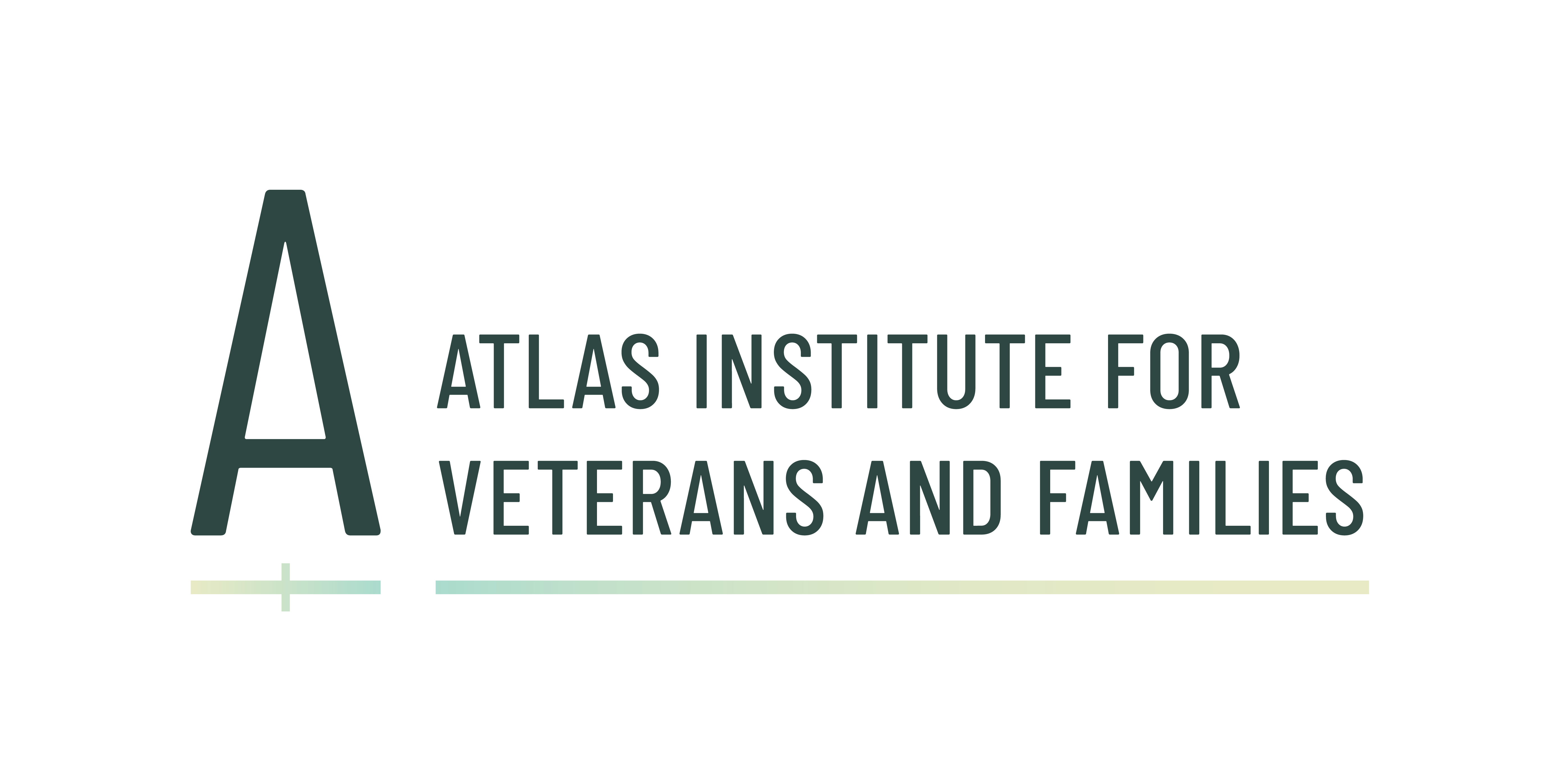
With funding from:

